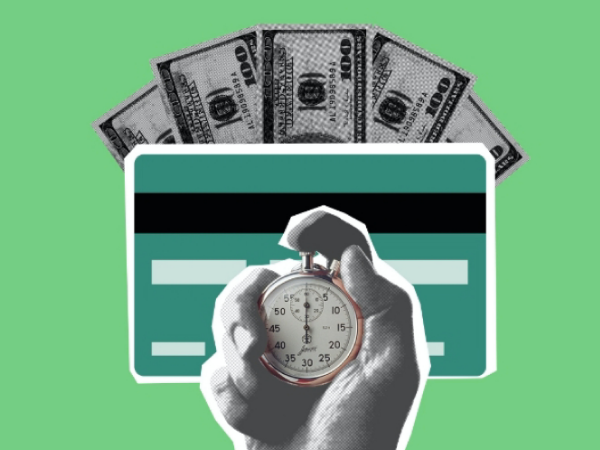Student Loan Deferment: Everything You Need to Know
Having student loans is a lifelong commitment. Sometimes, it’s hard to pay them. When this comes up, it’s important to know that a lifeline in the form of student deferment can save you.
Student loan deferment is one of the options that the US government gives. It lets you avoid submitting payments on your loan, so you can find a new job or reopen your business. In turn, you will eventually be able to repay your student loan.
We will discuss student loan deferment, so you can see if it’s a good idea. Then, we’ll explore details regarding the program, especially the types available. You’ll see that your options are different if you have a private or federal student loan.
How Does Student Loan Deferment Work?
Student loan deferment refers to a temporary period during which borrowers with student loans can suspend or reduce their loan payments without facing penalties or negative consequences. This option is available to individuals who encounter specific qualifying circumstances that make it challenging for them to make regular loan payments.
In other words, you won’t have to pay your student loans every month. Still, they will build up interest during the deferment period. You may do two things during that time.
- Wait until the deadline – You could let your loan pile up interest. However, the program will capitalize your accrued interest, meaning it will add that amount to your total loan balance. Once repayment restarts, the loan will base your interest on this larger amount. As a result, you will have to pay more interest every month.
- Pay interest every month – On the other hand, you could pay the interest every month. This could prevent you from building up more unpaid interest, keeping your interest payments from rising.
These apply if you have a federal student loan. If you have a private loan, you will have to speak with your student loan servicer to find out if you can defer yours.
You May Also Like: How to Get Rid of Student Loan Debt? Strategies to Financial Freedom
Is Student Loan Deferment for You?
Before deciding if student loan deferment is for you, these are the factors to consider:
Enrollment in Eligible Education Institution
Deferment options like the In-School Deferment are available to borrowers who are enrolled at least half-time in an eligible educational institution, such as a college or university. This deferment allows students to defer their loan payments while they are actively pursuing their education.
Economic Hardship
Borrowers experiencing financial difficulties, unemployment, or substantial changes in their financial circumstances may qualify for an Economic Hardship Deferment. This option allows them to temporarily suspend loan payments during times of financial hardship.
Active Military Service
Military personnel on active duty in the U.S. Armed Forces or serving in the National Guard may be eligible for Military Service Deferment. This deferment provides relief during the period of active duty or qualifying National Guard duty.
Post-Active Duty Transition
Upon completing active military service, military personnel transitioning back to civilian life can apply for Post-Active Duty Deferment. This allows them to defer loan payments while they reintegrate into the workforce or continue their education.
Graduate Fellowship Programs
Borrowers enrolled in a graduate fellowship program may be eligible for a Graduate Fellowship Deferment, providing them with financial relief during their fellowship period.
Rehabilitation Training Programs
Borrowers participating in a rehabilitation training program for individuals with disabilities may qualify for Rehabilitation Training Deferment.
Parent PLUS Loan Borrower Deferment
Parent borrowers with PLUS loans can request deferment while their dependent student is enrolled at least half-time in an eligible educational institution.
Unemployment or Job Seeking
Borrowers facing unemployment may qualify for Unemployment Deferment, allowing them to temporarily suspend loan payments while actively seeking employment.
Temporary Total Disability
Borrowers who experience a temporary total disability that prevents them from working may be eligible for Temporary Total Disability Deferment.
Read More: How to Pay Off Student Loans Fast? 8 Tips to Pay Off Student Debt
Is Student Loan Deferment a Good Idea?
Before you check the student loan servicing terms, you must be sure about this decision. After all, it involves a huge amount that you must repay no matter what!
Moreover, you should consider the risks of this decision. If you’re not careful, your money problems could worsen. Keep these in mind before applying:
- Short-term solution – Student loan deferment only lasts for a short time, so you can’t use this to avoid repaying.
- Be in debt longer – You still owe money during deferment, and you’ll only start repaying after that ends. This means you’re spending more time in debt, and you’ll take even longer if you don’t pay interest every month.
- Loan default – Let’s say you still couldn’t repay the loan even after this. Eventually, your loan may default, causing a lot of problems. For example, a part of your salary may go to your loan holder.
- Get bad credit – This is one of the biggest problems you could get if you keep on delaying your student loans. Late payments will lower your credit rating. A bad credit score could give you more problems.
You May Also Like: Student Loan Forgiveness Programs
Who Qualifies for a Student Loan Deferment?
Your relief options will depend on your current situation. The following are the types of student loan deferment you may get if you have a federal student loan:
- Economic Hardship Deferment – You may get this if you’re receiving welfare or working in the Peace Corps. This is also a choice for those earning less than 150% of the poverty guidelines. Though, this only lasts for three years.
- Cancer Treatment – Like its namesake, you may get this if you’re dealing with cancer. You may put off paying your loan during the treatment and six months after it ends.
- Unemployment – You may qualify if you receive unemployment benefits, or you’re having trouble finding a job.
- Parent PLUS Borrower – if you used the Direct PLUS Loan program to pay for your kid’s education, you may get this plan.
You’ll have to contact your loan holder if you have private student loans. See if it will let you delay your loan payments and learn how you may qualify.
Read More: What Should I Do If I Can’t Make My Student Loan Payments
Types of Student Deferment
Student loan deferment offers temporary relief from making loan payments under specific circumstances. Different types of student loan deferment are available, each catering to different situations and borrower needs. Here are some common types of student loan deferment:
In-School Deferment
This deferment is for borrowers who are enrolled at least half-time in an eligible educational institution, such as a college or university. In-school deferment allows students to postpone their loan payments while they are actively pursuing their education.
Unemployment Deferment
=If you are facing unemployment, you may be eligible for this type of deferment. Unemployment deferment typically allows borrowers to pause their loan payments for a limited period while they are actively seeking employment.
Economic Hardship Deferment
Economic hardship deferment is available to borrowers who are experiencing financial difficulties but do not qualify for other deferment options. It allows temporary suspension of loan payments until the financial situation improves.
Military Service Deferment
This deferment is designed for borrowers who are on active duty in the U.S. military or are serving in the National Guard. Military service deferment provides relief during the period of active duty or qualifying National Guard duty.
Post-Active Duty Deferment
Post-active duty deferment is available to military personnel who have recently completed their active duty service and are transitioning back to civilian life. It provides temporary relief as they reintegrate into the workforce or continue their education.
Graduate Fellowship Deferment
Borrowers who are enrolled in a graduate fellowship program may be eligible for this deferment. It allows students to focus on their fellowship responsibilities without worrying about loan payments.
Rehabilitation Training Deferment
If you are enrolled in a rehabilitation training program for individuals with disabilities, you may qualify for this type of deferment.
Parent PLUS Borrower Deferment
Parent PLUS loan borrowers can request deferment while their dependent student is enrolled at least half-time in an eligible educational institution. This deferment applies to the parent borrower, not the student.
Internship/Residency Deferment
Medical or dental students completing their internship or residency may be eligible for this deferment to accommodate their demanding training schedule.
Temporary Total Disability Deferment
Borrowers who are temporarily unable to work due to a total and permanent disability may be eligible for this deferment. Documentation from a qualified physician is typically required.
It’s important to note that deferment availability and conditions may vary depending on the type of loan (federal or private) and the specific loan servicer. Borrowers should reach out to their loan servicer to discuss their eligibility and application process for the appropriate deferment type that aligns with their circumstances.
You May Also Like: How Do I Lower My Student Loan Interest Rate?
Other Ways to Pay Student Loans
Student loan deferment isn’t the only way you could pay easier. If this doesn’t work for you, perhaps the following could help your deal with your student debt faster:
- Change repayment plan – You could turn your current plan into an income-driven repayment (IDR) plan. This will limit the monthly payments from 10% to 20% of your discretionary income. Even better, you might not even have to pay every month depending on your family size.
- Consolidated loan – You may lump all your student loans into one that has a lower interest rate. This is called debt consolidation, and it could reduce your payments every month. In turn, you may find it easier to pay.
- Student loan forgiveness – The Department of Education will overhaul this program, removing the debt of 22,000 borrowers. You might want to check if you’re part of the select few. If not, check their website if you qualify.
You may also try to get rid of student debt yourself. Follow the snowball method or the avalanche method to make repayment easier.
The former involves paying the smaller balances first. This is best if you can’t stick to a repayment plan. Completing smaller amounts could encourage you to keep going.
On the other hand, you may try the latter by paying the larger amounts first. This is faster than the snowball, but you’ll take longer to see results.
Final thoughts
You’ve now learned the gist of student loan deferment. Still, you should read more about this program because we cannot include every detail about it.
Again, plan your debt repayment before using any method. This makes sure you don’t waste time and money. You may try the other options we laid out.
Frequently Asked Questions
Can I continue making payments on my student loans during deferment?
Absolutely! During deferment, borrowers have the option to continue making payments on their student loans if they wish to do so. Making payments during deferment can be beneficial as it helps to reduce the overall loan balance and saves on interest costs. If you decide to make payments, it’s essential to communicate with your loan servicer and specify that you want the payments applied to the loan principal. This ensures that the extra payments directly contribute to lowering the outstanding balance.
Can I defer private student loans as well?
Yes, some private student loan lenders do offer deferment options similar to federal loans. However, specific terms and conditions of deferment depends on the lenders themselves. Unlike federal loans, private lenders might charge fees for deferment. Interest could continue to accrue during the deferment period. Just contact private loan provider directly and inquire about their deferment policies and eligibility criteria.
What are my options if I don’t qualify for deferment?
If you find that you don’t qualify for student loan deferment, there are alternative options available. For federal loans, one viable option is to explore income-driven repayment plans. Since this is based on your income and family size, it becomes manageable. Additionally, you could also consider requesting a forbearance. This is when payments get temporarily suspended or reduced. Keep in mind, though, that interest continues to accrue during forbearance, regardless of the loan type.
Published on October 27, 2021; Updated on July 29, 2023.
Sponsored Advertising Content:
Advertorial or Sponsorship User published Content does not represent the views of the Company or any individual associated with the Company, and we do not control this Content. In no event shall you represent or suggest, directly or indirectly, the Company's endorsement of user published Content.
The company does not vouch for the accuracy or credibility of any user published Content on our Website and does not take any responsibility or assume any liability for any actions you may take as a result of reading user published Content on our Website.
Through your use of the Website and Services, you may be exposed to Content that you may find offensive, objectionable, harmful, inaccurate, or deceptive.
By using our Website, you assume all associated risks.This Website contains hyperlinks to other websites controlled by third parties. These links are provided solely as a convenience to you and do not imply endorsement by the Company of, or any affiliation with, or endorsement by, the owner of the linked website.
Company is not responsible for the contents or use of any linked website, or any consequence of making the link.
This content is provided by New Start Advantage LLC through a licensed media partnership with Inquirer.net. Inquirer.net does not endorse or verify partner content. All information is for educational purposes only and does not constitute financial advice. Offers and terms may change without notice.








